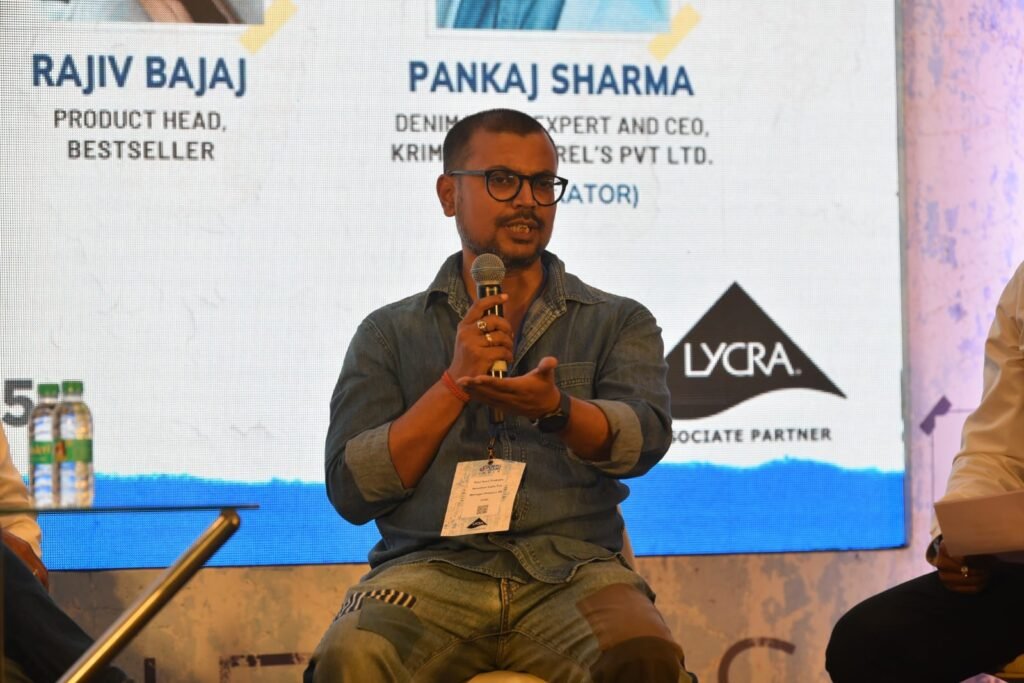New Delhi, India, 20th May 2024 – The 6th edition of the Denim and Jeans India Conclave held on 15th MAY at The Lalit Ashok, Bangalore, saw industry leaders, innovators, and stakeholders gather to discuss the future of denim sustainability. A key highlight of the event was a compelling presentation by Ravi Kant Prakash, Bottom’s Lead Product Designer Menswear United Colors of Benetton India, focusing on reducing rewashing and rejections in denim production as a crucial step towards sustainability.

In his address, Ravi Kant Prakash emphasized the urgent need for the denim industry to adopt sustainable practices, particularly by minimizing the rewashing and rejection rates. He outlined several strategies to achieve this goal, aiming to inspire a shift towards more environmentally responsible production processes.
Prakash highlighted the importance of rigorous quality control measures throughout the production process. Ensuring that denim products meet high-quality standards reduces the likelihood of defects, thereby decreasing the chances of rejections and the need for rewashing. Additionally, proper training for workers on handling and caring for denim fabrics was underscored as essential. This minimizes mishandling and improper care during production, which can lead to unnecessary rewashing.
The use of advanced technologies such as laser finishing, ozone treatments, and innovative dyeing techniques can significantly reduce the need for excessive washing. These technologies achieve the desired aesthetics without the environmental impact associated with traditional methods. Prakash also advocated for designing denim products with durability in mind. By using high-quality materials and construction techniques, the lifespan of denim garments can be prolonged, reducing the frequency of washing and extending the product’s life cycle.
Educating consumers on proper denim care practices is vital. By providing care instructions on product labels or through marketing campaigns, consumers can be encouraged to adopt sustainable behaviour, thus prolonging the lifespan of their garments and reducing the need for frequent washing. Implementing recycling and up cycling initiatives was presented as a key strategy. Re purposing denim scraps and discarded garments can reduce waste and minimize the environmental impact of production.
Prakash emphasized the adoption of circular economy models, where products are designed to be recycled or repurposed at the end of their lifecycle. This approach promotes sustainability by minimizing waste and resource depletion.
The conclave concluded with a call to action for the denim industry to embrace these sustainable practices. By reducing the need for rewashing and rejections, manufacturers can significantly lower their environmental footprint and contribute to a more sustainable future.
The Denim and Jeans India Conclave is a premier event that brings together industry leaders, innovators, and stakeholders to discuss the latest trends, challenges, and innovations in the denim industry. The 6th edition focused on sustainability, showcasing the industry’s commitment to reducing its environmental impact and promoting sustainable practices.


